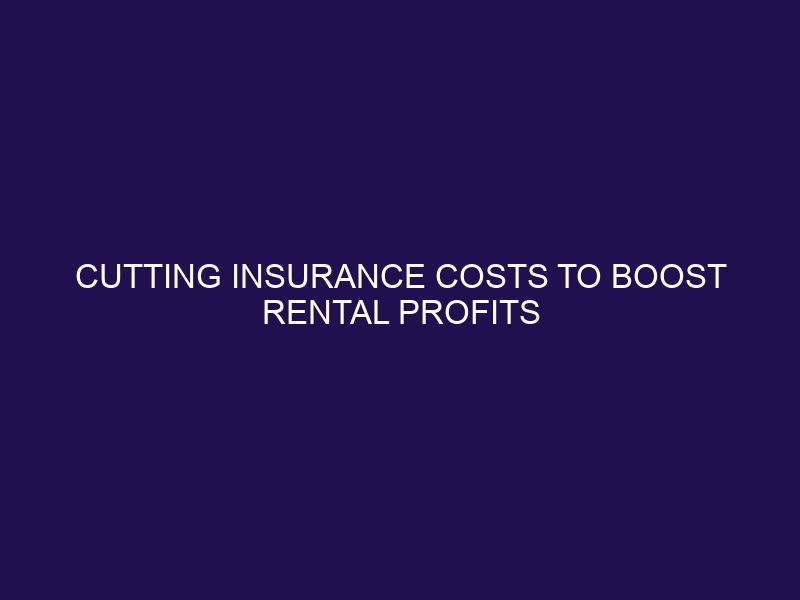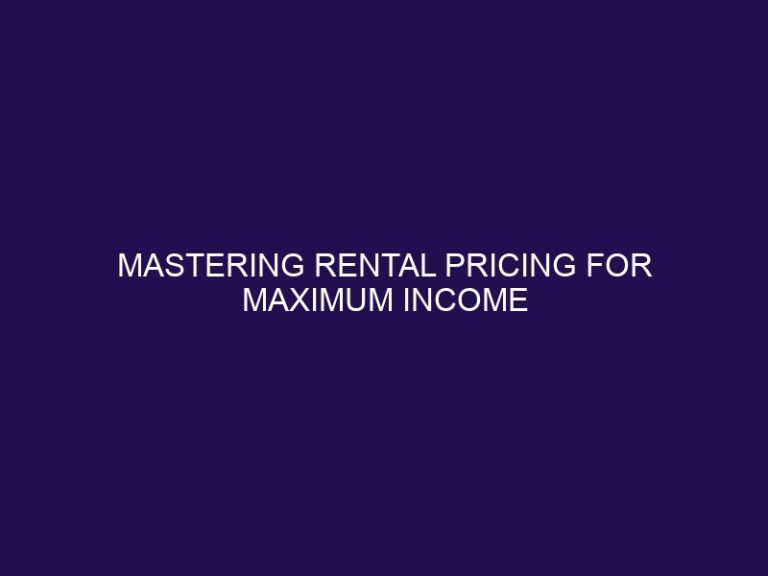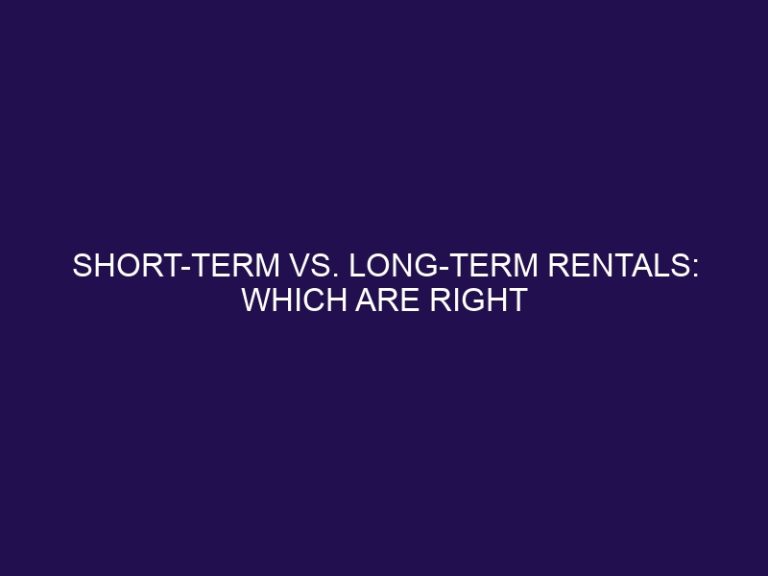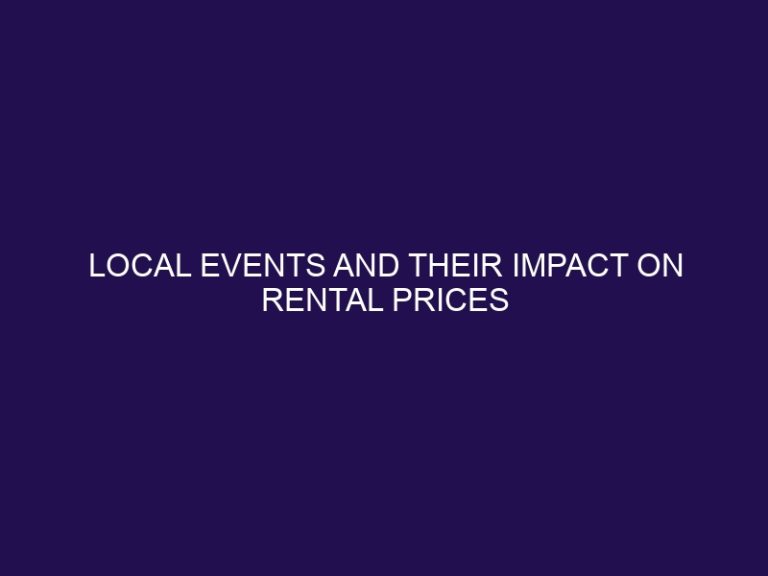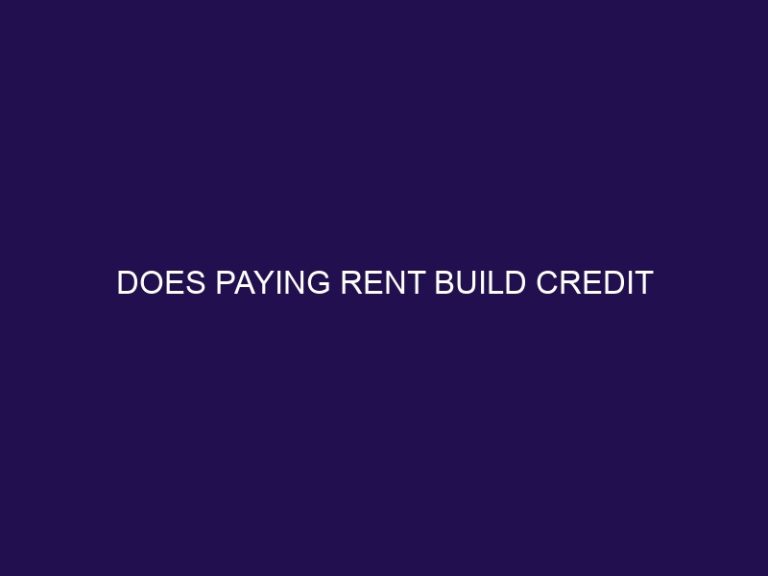Cutting Insurance Costs to Boost Rental Profits
Rental property insurance is a crucial aspect of being a landlord. It protects your investment and provides financial security in case of any unforeseen events or damages. However, insurance costs can add up and eat into your rental profits. As a landlord, it is essential to find a balance between protecting your investment and cutting costs to maximize profits.
Reducing insurance costs for your rental property can bring significant benefits in the long run. By cutting expenses, you can increase your rental profits and potentially attract more tenants with lower rental rates. However, it is essential to understand the risks and consequences of reducing insurance costs and finding the right balance.
Here are some tips to help you reduce insurance costs for your rental property:
- Shop Around for the Best Deals: Don’t settle for the first insurance provider you come across. Take the time to shop around and compare rates from different companies to find the best deal.
- Increase Your Deductible: By increasing your deductible, you can lower your monthly premiums. Just make sure you have enough funds to cover the deductible in case of an emergency.
- Bundle Your Insurance Policies: Consider bundling your rental property insurance with other policies, such as auto or life insurance, to receive discounts.
- Install Safety Features: Installing safety features like smoke detectors, security systems, and fire extinguishers can lower your insurance costs.
- Consider Self-Insuring: If you have multiple rental properties, consider self-insuring. This means setting aside funds to cover damages or losses instead of relying on insurance.
While reducing insurance costs can bring financial benefits, it is essential to weigh the risks and potential downsides. Here are some risks of cutting insurance costs:
- Limited Coverage: By cutting costs, you may be compromising on coverage, leaving you vulnerable to potential losses.
- Higher Out-of-Pocket Expenses: In case of any damages or losses, you will have to pay higher out-of-pocket expenses if your insurance coverage is limited.
- Potential Legal Issues: Inadequate insurance coverage can lead to legal issues if a tenant or third party is injured on your property.
In conclusion, it is crucial to find the right balance between cutting insurance costs and protecting your investment. Take the time to research and compare different insurance options to find the best deal without compromising on coverage.
Why is it Important to Cut Insurance Costs?
Reducing insurance costs is crucial for maximizing rental profits as it has a direct impact on the bottom line. Lowering insurance expenses not only increases cash flow, but also improves competitiveness and ultimately maximizes returns. For example, a 15% reduction in insurance expenses can result in an annual increase of over 7% in rental profits.
How to Reduce Insurance Costs for Rental Properties
As a landlord, insurance costs can significantly cut into your rental profits. However, there are various strategies you can implement to decrease these expenses and boost your bottom line. In this section, we will discuss five tips for reducing insurance costs for rental properties. From shopping around for the best deals to considering self-insurance, we’ll cover the most effective methods to save money on insurance while still protecting your investments.
1. Shop Around for the Best Deals
- Compare quotes from multiple insurance providers.
- Consider coverage, deductibles, and premiums to find the best deals.
- Review customer feedback and claims processing efficiency to ensure the best coverage.
Research indicates that shopping around can save policyholders up to 30% on insurance premiums.
2. Increase Your Deductible
- Evaluate your financial capability before considering an increase in your deductible.
- Check your current deductible and evaluate potential savings.
- Contact your insurance provider to understand the effects of raising your deductible.
3. Bundle Your Insurance Policies
- Combine multiple insurance policies from the same provider for potential discounts.
- Consider bundling your rental property insurance with your auto or life insurance to save on premiums and maximize benefits.
When bundling policies, make sure the coverage meets your specific rental property needs, maximizing benefits while reducing costs. By bundling your insurance policies, you can save money and have peace of mind knowing all your insurance needs are taken care of by one provider.
4. Install Safety Features
- Install deadbolt locks on all exterior doors.
- Consider installing a security alarm system.
- Fit smoke detectors on every level of the property.
- Implement fire extinguishers in key areas.
- Ensure proper lighting in common areas and entryways.
5. Consider Self-Insuring
- Assess Financial Capability: Evaluate if your finances allow you to cover potential losses and consider self-insuring.
- Minimize Risk: Implement robust risk management strategies to reduce exposure.
- Legal Expertise: Seek legal counsel to understand liability implications.
What Are the Risks of Cutting Insurance Costs?
As a rental property owner, minimizing costs and maximizing profits is always a top priority. However, when it comes to cutting insurance costs, there are potential risks to consider. In this section, we will discuss the potential risks that come with cutting insurance costs. These include limited coverage, higher out-of-pocket expenses, and potential legal issues. By understanding these risks, you can make an informed decision on whether cutting insurance costs is the right choice for your rental property.
1. Limited Coverage
- Review the insurance policy to fully understand the limitations of coverage.
- Consider purchasing additional coverage for any risks that are excluded.
- Consult with an insurance professional to evaluate the sufficiency of coverage.
Ensuring comprehensive coverage is essential in order to minimize potential financial losses.
2. Higher Out-of-Pocket Expenses
Landlords may face financial burdens if their property is damaged or they face liability claims, resulting in higher out-of-pocket expenses. While reducing insurance costs may lower premiums, it could also mean taking on more financial responsibility for repairs or legal fees. It is important for landlords to carefully consider the potential savings versus the potential risk of increased out-of-pocket expenses.
3. Potential Legal Issues
- Violating Insurance Terms: Trying to save money can potentially lead to policy breaches, which could result in legal repercussions.
- Negligence Claims: Not having enough coverage may expose landlords to lawsuits from tenants for injuries related to the property.
- Property Damage Disputes: Insufficient coverage could result in legal disputes over damage claims.
Frequently Asked Questions
How can an independent insurance broker help me reduce property insurance costs for my rental properties?
An independent insurance broker who specializes in insuring residential rental properties can help you save money on insurance costs by representing multiple insurance companies and offering the broadest coverage at the most competitive price.
What is a cost reduction measure that can help lower my property insurance premiums?
Raising your deductible, especially to $5,000 or more, can result in a significant savings of up to 25% on your insurance premiums.
How can improving security and fire safety measures on my rental properties lead to insurance cost savings?
By installing hardwired smoke detectors and sprinkler systems, you may be eligible for insurance discounts of up to 25%.
What are some important steps I should take to control costs and maximize return on my investment property during the COVID-19 pandemic?
Some cost-cutting strategies to consider include regularly reviewing your insurance policies and coverage, combining policies to reach minimum premium thresholds, and working with a specialist in rental property insurance to find the best possible deals.
How can being proactive with regular maintenance and inspections on my rental properties help reduce insurance costs?
Regular maintenance and inspections can help identify and prevent minor issues from turning into major problems, potentially reducing the likelihood of insurance claims and keeping premiums lower.
How can I stay informed about changes in the U.S. property and casualty insurance market to better manage my rental property business?
Regularly staying updated on current events and trends, such as rising energy costs and loss cost inflation from natural disasters, can help you make informed decisions and adjust your insurance coverage and cost-cutting strategies accordingly.

